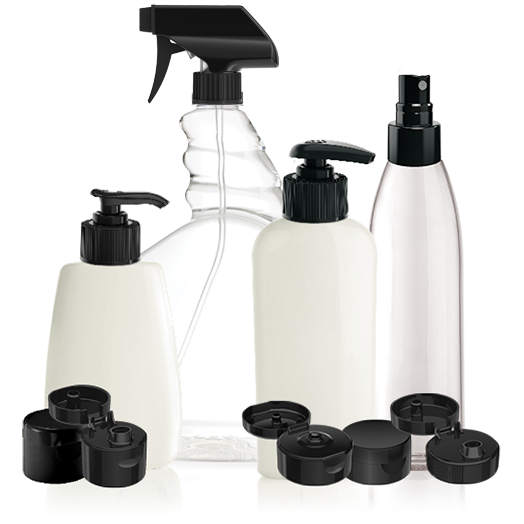For today’s consumers, sustainable packaging isn’t a “nice to have” anymore. With 6.3 billion metric tons of plastic waste residing in landfills, consumers are more environmentally minded than ever before. In fact, 37% of millennials check packaging labels for sustainability and 52% of consumers are willing to pay upwards of 10% more for products with sustainable packaging.
 Because of this, brands are looking for packaging partners to help them meet the rise in consumer expectations, which is why sustainability continues to be a strong focus for Silgan Dispensing. Our recently launched suite of PCR products features closures and dispensing solutions made from post-consumer recycled plastic. We are the first company in the world to manufacture a full family of market-leading pumps and trigger sprayers with PCR.
Because of this, brands are looking for packaging partners to help them meet the rise in consumer expectations, which is why sustainability continues to be a strong focus for Silgan Dispensing. Our recently launched suite of PCR products features closures and dispensing solutions made from post-consumer recycled plastic. We are the first company in the world to manufacture a full family of market-leading pumps and trigger sprayers with PCR.
We don’t think of sustainability as a trend, but as a necessity to strive toward. We’re continuously looking for ways to explore and expand on our sustainability initiatives—even beyond our products. One of which is through our partnership with APR (the Association of Plastic Recyclers), led by our senior manager, global beauty category development, Brinder Gill.
Below is an excerpt from our conversation with Brinder about APR and Silgan Dispensing’s involvement with the organization.
Tell us about APR – why was the organization founded and what is their goal?
APR is a national trade organization that represents companies that acquire, re-process and sell the output of more than 90% of the post-consumer plastic in North America. Their focus is to expand the post-consumer plastics recycling industry through a cooperative effort that aims to eliminate barriers to successful commercial recycling.
Silgan Dispensing was actually the first pump supplier to join APR, and others have followed since.
Why did you decide to join APR, and why do you think it’s important for Silgan Dispensing to be involved with the organization?
Sustainable packaging is driven in large part by consumer demand, and brands are looking for packaging partners to help them come up with solutions to meet their sustainability goals.
So much of the industry conversation around sustainability happens at APR, and by being a member, we have more opportunities to help impact the future of sustainable packaging. A lot of what we have seen and learned by being part of APR is knowledge we can take back to our team and work that into our product design and manufacturing process.
What do you hope to accomplish by being part of APR?
Beyond our own internal work of developing more sustainability minded solutions like our PCR suite of products, working with APR will allow us to extend our work into the circular economy—meaning the life of our products once consumers have finished using them. Our hope is that we can have an impact on the environmental footprint of our products, and of course those like it, even after they have reached the end of their usefulness.
Tell us about some of the work that you do with the organization.
As a member of APR, I am involved in a number of the organization’s committees, where I have a role in projects that can help improve plastic recyclability and the use of recovered plastics. As a dispensing solutions supplier, Silgan Dispensing is uniquely positioned to help the industry come up with solutions to the challenges they are facing.
The APR just held their most recent conference this past March, just outside of Washington, D.C. What were some of the topics that were top of mind for the group during the event?
Two major topics stand out from our most recent meeting, the first being the certification of PCR to ensure that materials being marketed and sold as post-consumer recycled are actually that. This is important as the industry needs to promote the use of PCR and ensure the demand continues to grow so that we can reinvest in a better recycling system in the future. Also, in today’s system black plastics which use a carbon based colorant are not able to be captured in the current recycling system so we are working to determine realistic solutions that manufacturers and brands can use for new products to ensure more plastic is being captured.
